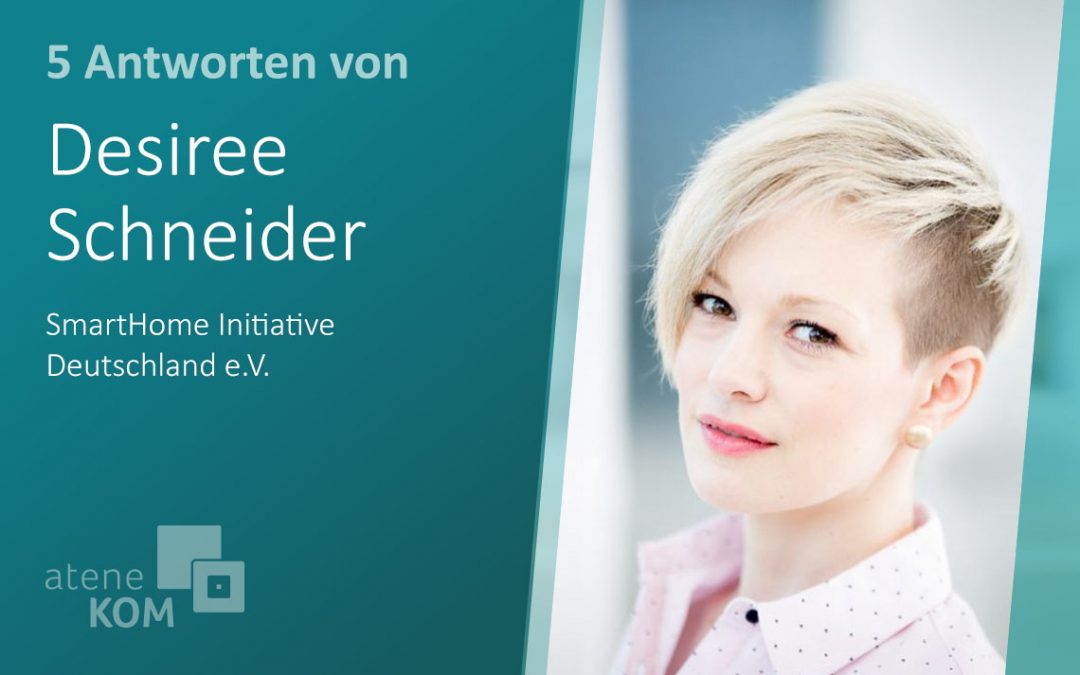aconium: How smart are Germany’s households already? Desiree Schneider: Germany has been smart for a very long time – classic home automation has been around for over 20 years, when the term smart home was not even known. As things stand today, we can say that demand has increased enormously. Of course, there is a difference between existing and new builds. Many prefabricated house providers offer their customers the option of equipping their homes with the necessary technical requirements (electrical engineering, cabling, etc.) right from the start, so that residents can live in a smart home with a variety of functions in the future. In new private construction, it depends on whether a) the customer has a need and b) the parties involved, such as architects and tradespeople, offer, recommend and implement smart homes. We know from experience that many people can imagine and want smart functions in their home, but don’t really know where to turn.
Smart home solutions in the form of Internet of Things devices – usually radio-based and possible without conversion – and individual smart gadgets are mostly used for existing buildings and rental apartments. These are the most common entry-level products. As prices have become more attractive, the inhibition threshold for opting for a smart home solution has also fallen sharply in the last two years. aconium : What smart applications will be moving into our houses and apartments in the future? Schneider: Above all, we can expect voice control to become increasingly important for smart home applications in the future. Saying commands is the most intuitive way for us humans to control something. If voice control is technically well implemented, it is highly likely that it will become the primary method of controlling smart home solutions. However, it should be borne in mind that you may have visitors who do not know the voice commands within your own four walls. The light switch will therefore remain indispensable for a long time to come. aconium: What challenges do you see for the introduction of smart home solutions in Germany? Schneider: There are three key issues: Firstly, media reports are often sensationalist and insufficiently informed about the security aspect of smart home applications, stirring up fears among users that are unfounded.
Secondly, end customers usually do not know who to turn to if they want a smart home. There are now many consulting offices, specialist planners and specialized tradespeople who have the topic on their agenda. However, it is often still difficult to find them. This is also due to the fact that it is usually unclear to consumers where they can find this expertise. Is it the electrical trade company? Or is it a specialist planning office?
This is also where we see our task of providing people with much better information.
And thirdly, we have found that advertising, especially for do-it-yourself (DIY) products, has sometimes led to distorted or unrealistic expectations among end customers. One example: although the garden sprinkler can also be controlled via a voice assistant such as Alexa and her sisters, frustration is inevitable if the end user is not aware that a smart home-enabled garden sprinkler must be purchased in addition to the voice control solution. At the same time, self-programming and setting up also harbors a certain potential for frustration, especially as soon as more than one smart component is to be implemented. However, marketing has become much more cautious in the past year. At the same time, DIY products are becoming increasingly user-friendly.
aconium: How can these challenges be overcome?
Schneider: The number of specialist trades businesses that include smart homes in their portfolio should continue to grow. As an association, we certify companies as “specialist companies for networked buildings” and show consumers where they can find competent contacts for advice and implementation. In addition, it must be communicated even more clearly in future that smart homes are not a technical gimmick, but bring enormous benefits. In general, more neutral and detailed information needs to be provided about smart home concepts and their wide range of possible applications. There is also still a lot of educational work to be done on the subject of security. aconium: What is your wish for the future development of smart homes? Schneider: Of course we would like smart homes to become the standard for contemporary living – after all, they offer a whole range of advantages: Smart Home products increase the security of a home (burglary prevention, access control, etc.). The assistance systems can ensure that elderly or sick people can live independently in their own homes for longer. Smart homes can also significantly reduce heating energy consumption, for example. We hope that people become aware of this and that even more specialist companies offer and implement this accordingly.

